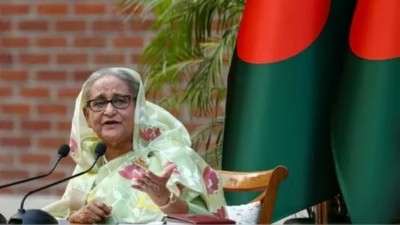Bangladesh is entering one of its most volatile phases in a decade as the International Crimes Tribunal’s death sentence against former Prime Minister Sheikh Hasina coincides with coordinated explosions and unrest across Dhaka. The verdict delivered in absentia accuses Hasina of crimes against humanity linked to the 2024 student-protest crackdown, marking an unprecedented moment in the country’s political and judicial history.
Multiple crude bomb blasts, arson attempts, and clashes were reported across the capital hours before the judgment, prompting sweeping security deployments, shoot-on-sight orders, and a nationwide alert. Analysts argue that the explosions serve both as a pressure tactic and a reflection of the deepening polarisation between Hasina’s supporters and the interim administration that replaced her earlier this year.
The tribunal’s findings allege that state machinery under Hasina used disproportionate force, including aerial assets and heavy weaponry, during last year’s protests claims her party dismisses as politically orchestrated. Her continued exile only heightens the narrative battle: while the government positions the verdict as a step toward accountability, Awami League leaders frame it as judicial revenge.
The unrest exposes broader structural fragilities weak institutional trust, factionalised policing, and a political vacuum exploited by both loyalists and opportunistic groups. Economists warn that prolonged instability could disrupt Bangladesh’s export-driven economy and deepen insecurity ahead of possible elections.
With blasts signalling rising sabotage potential and the verdict intensifying political divides, Bangladesh now navigates a precarious intersection of justice, power, and civil stability.

